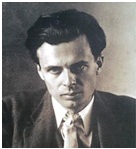|
 |
|
 |
|
|
||
Shakespeare's The Tempest - Managing
Change
The Tempest
Key characters Prospero, the deposed Duke of Milan, living in exile on an island. Caliban, Prospero’s servant and native of the island. Ariel, a magical spirit serving Prospero. Miranda, Prospero’s 15-year-old daughter. Antonio, the new Duke of Milan and Prospero’s brother. Alonso, king of Naples. Sebastian, Alonso’s brother. Ferdinand, Alonso’s son. Gonzalo, an old wise man from Naples. Fun facts
The story Shipwrecked in a violent storm (or tempest) are:
Landing on an island, they are unaware that the storm has been created by the magical spirit, Ariel, the servant of Prospero, the vengeful ruler of the island. Prospero arrived there with his daughter, Miranda, 12 years earlier after his brother Antonio
had overthrown him as the Duke of Milan with the help of Alonso. (John William Waterhouse's 1916 painting of Miranda seeing the shipwreck is pictured right) Prospero has another servant, Caliban, whom he deposed as ruler of the island. To murder Prospero, Caliban gains the assistance of:
But they are thwarted by Ariel, who also stops three attempted murders of Alonso by
Ferdinand and Miranda (Elisabeth Hopper, pictured right, in a 2011 production):
Then Antonio, Alonso and Sebastian are looking for Ferdinand when Ariel makes a banquet:
Ariel then leads them to Prospero (Ralph Fiennes, pictured right, in a 2011 production) who:
Ferdinand and Miranda join them, and they are all reunited and reconciled. Ariel and Caliban (forgiven after repenting) are given their freedom, and Prospero is reinstated as the Duke of Milan.
Lessons for managing change 1. Change can be exaggerated Prospero creates the storm only to get Alonso and his companions onto the island. None of them are injured, or ever in danger. Prospero’s cruellest trick is to make Alonso temporarily believe that his son, Ferdinand, has died in the shipwreck. But ,even here, Prospero is being cruel to be kind, because Alonso’s grief makes him sorry for deposing Prospero, leading to their final reconciliation. 2. Unity is strength At the end of the play, everyone is happier after their reconciliation. Prospero seeks revenge against his brother, Alonso, but finally realizes that forgiveness and reconciliation are much better alternatives. So he gives up manipulating people by magic. Crisis brings people together. In the storm Trinculo says: “Misery acquaints a man with strange bed-fellows”. 3. Good leadership is essential The ship’s captain:
Prospero is also a good leader:
4. Integrity is important Even when things are changing and difficult, the leading characters’ best actions come from sticking to their principles ,particularly
5. Learn from experience Miranda falls for Ferdinand, only the third man she has ever seen (after her father and Caliban). She rashly declares the arrival of a “brave new world”. The wiser and more experienced Prospero reflects that the world can hardly be brave (or wonderful) with potentially evil people like Sebastian, Alonso and Antonio in it. 6. People can transform themselves Ariel observes that the storm has made Alonso a better person. To achieve such a transformation, you must have:
a) ambitious aims Prospero says: “We are such stuff as dreams are made on”.
b) effective time management This is because “Our little life is rounded with sleep [i.e. death] ” , Prospero
says.
c) freedom Ariel and Caliban both suffer from being slaves until the end of the play. Caliban’s only solace is dreaming of freedom. He also suffers the degradation of hearing Trinculo and Stephano’s plan to show him off for money in Europe.
7. Control your own destiny
“Let us not burden our remembrance with a heaviness that's gone”, says Prospero.
8. Face reality Prospero is successful because he bases his dreams on an honest assessment of his;
The play continually shows the difference between illusion and reality - for example, the:
Prospero also says that the permanence of material things is an illusion unlike the eternal truths of love and forgiveness. “The great globe itself, yea, all which it inherits, shall dissolve”, he
comments.
9. Be prepared for the unexpected The guilty Antonio and Alonso were surprised by:
10. Humour helps In the storm Gonzalo, an old man from Naples, jokes that the ship cannot sink, because its captain looks as though he was born to be hanged and so cannot die from drowning!
Key quote on objectives and vision We are such stuff as dreams are made on, Prospero.
Key quotes on happiness Misery acquaints a man with strange bed-fellows, Trinculo. He receives comfort like cold porridge, Sebastian.
Key quote on learning Thought is free, Stephano (in a song).
Key quote on society How beautiful mankind is! O brave new world that hath such people in ’t!, Miranda (the origin of the title of Aldous Huxley’s book, Brave New World).
Key quote on stress and pain Let us not burden our remembrance with a heaviness that's gone, Prospero.
Key quote on ethics The rarer action is in virtue, than in vengeance, Prospero. |
|
|
||
|
|
||
| Copyright © wisdomtowin.com 2025 All Rights Reserved | ||
|




















